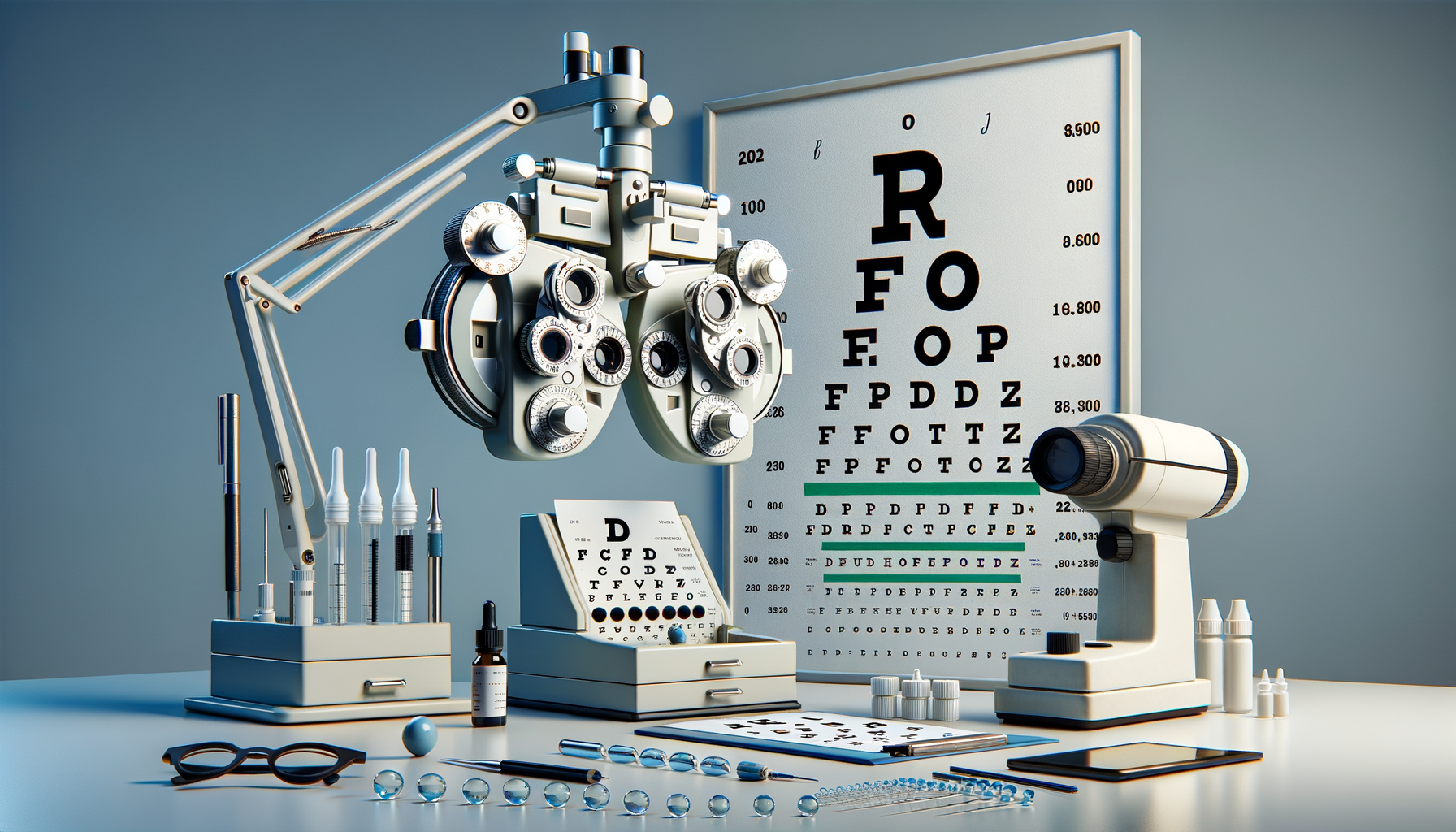Introduction to Vision Tests
Vision tests are crucial for maintaining eye health and ensuring that individuals can see clearly and comfortably. These tests are not only about determining whether you need glasses or contact lenses; they also play an essential role in detecting eye diseases and conditions early on. With regular vision tests, you can safeguard your eyesight and address any potential issues before they become significant problems.
In this article, we will delve into the various aspects of vision tests, exploring their importance, the different types available, and what to expect during a typical exam. Whether you’re getting your first eye exam or it’s been a while since your last one, understanding the process can help alleviate any anxiety and prepare you for what lies ahead.
The Importance of Regular Vision Tests
Regular vision tests are vital for several reasons. Firstly, they help in the early detection of eye conditions such as glaucoma, cataracts, and macular degeneration. These conditions can progress without noticeable symptoms, but a comprehensive eye exam can reveal them at an early stage, allowing for timely intervention.
Moreover, vision tests ensure that your prescription for corrective lenses is up-to-date. As your eyes change over time, having an accurate prescription is essential for clear vision. This is particularly important for children, as undiagnosed vision problems can impact their learning and development.
Additionally, vision tests can uncover other health issues. For instance, changes in the blood vessels of the eye may indicate diabetes or high blood pressure. By having regular eye exams, you can monitor not only your eye health but also your overall well-being.
Types of Vision Tests
There are several types of vision tests, each designed to assess different aspects of your eye health and vision clarity. Here are some common types:
- Visual Acuity Test: This measures how well you can see at various distances, typically using a Snellen chart with letters of different sizes.
- Refraction Test: Determines the correct prescription for glasses or contact lenses by using a phoropter to test different lens strengths.
- Slit-Lamp Examination: Allows the optometrist to examine the structures of your eye under magnification, checking for abnormalities.
- Retinal Examination: Involves looking at the back of your eye, including the retina, optic disk, and underlying blood vessels.
- Glaucoma Test: Measures the pressure inside your eyes, as increased pressure can indicate glaucoma.
Each of these tests serves a unique purpose and together, they provide a comprehensive picture of your eye health.
What to Expect During a Vision Test
Understanding what to expect during a vision test can help ease any apprehension you might have. Typically, an eye exam begins with a discussion about your medical history and any vision problems you may be experiencing. The optometrist will then conduct a series of tests to evaluate different aspects of your vision and eye health.
During the visual acuity test, you’ll be asked to read letters from a chart at various distances. The refraction test involves looking through a phoropter, with the optometrist changing lenses to find the prescription that gives you the clearest vision.
The slit-lamp examination and retinal examination may involve shining a bright light into your eyes to get a detailed view of their internal structures. While this might be slightly uncomfortable, it is a crucial part of the exam.
Finally, if a glaucoma test is needed, it may involve a puff of air directed at your eye or the use of a tonometer to measure eye pressure. While the idea of these tests might be daunting, they are generally quick and painless.
Conclusion: The Path to Clear Vision
Vision tests are an indispensable part of maintaining eye health. By understanding their importance and what they entail, you can approach your eye exams with confidence and ensure that your vision remains clear and healthy. Regular eye exams can detect potential issues early, provide accurate prescriptions, and even reveal other health conditions.
Whether you’re due for an eye exam or considering one for the first time, remember that taking care of your eyes is an investment in your overall health and quality of life. With the right care and attention, you can enjoy the world around you in all its vibrant detail.








